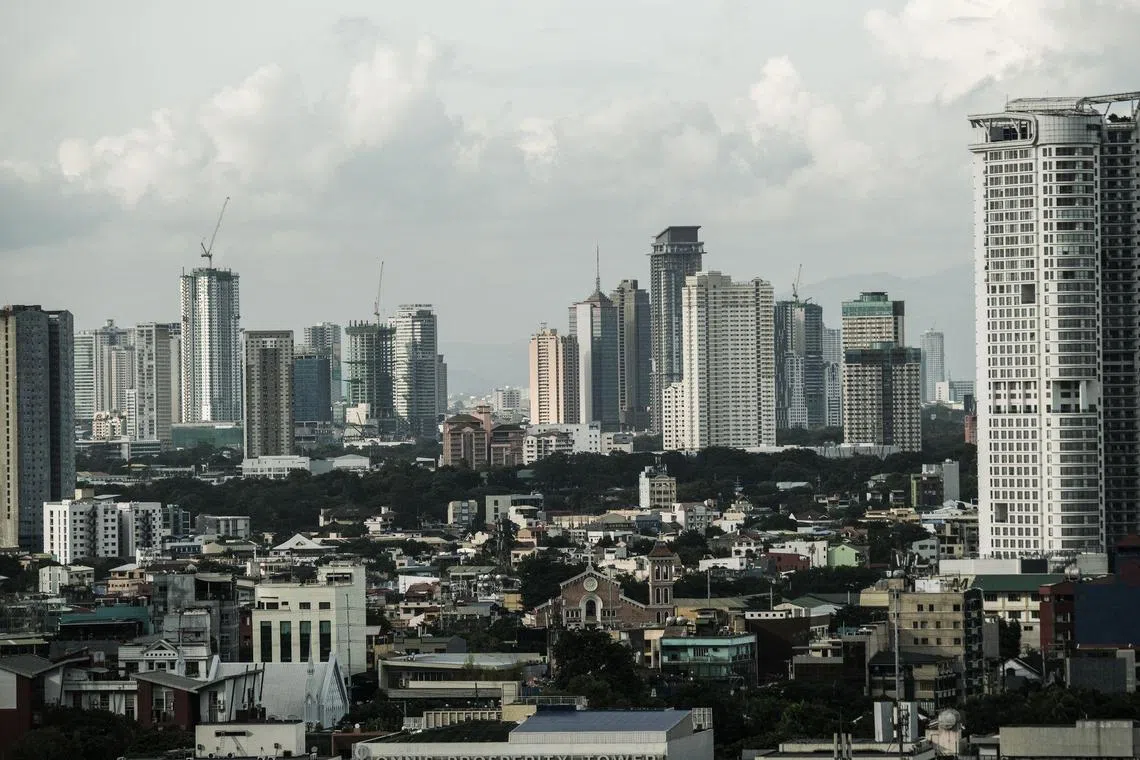Inflation-hit Philippines joins world’s largest free trade pact RCEP
Sign up now: Get insights on Asia's fast-moving developments

Officials hope the world’s largest free trade agreement can help the Philippines attract better jobs and source cheaper commodities amid record-high inflation.
PHOTO: BLOOMBERG
MANILA – The Philippines joined the Regional Comprehensive Economic Partnership (RCEP) on Tuesday night, in the hope that the world’s largest free trade agreement can help the country attract better jobs and source cheaper commodities amid record-high inflation.
The Senate voted on Tuesday night to ratify the pact, which includes the 10 Asean members, as well as China, Japan, South Korea, Australia and New Zealand. The Philippines was the last signatory state to ratify the RCEP, which took effect in January 2021.
The deal, which builds on Asean’s existing bilateral agreements with its free trade partners, cuts tariffs on about 92 per cent of goods traded between the member states. It also provides for preferential market access for specific products, and promotes regional supply chains.
The RCEP covers a region that includes around 2.1 billion people and accounts for about 30 per cent of global gross domestic product, or roughly US$26 trillion (S$35 trillion).
Philippine President Ferdinand Marcos Jr backed the RCEP, which was ratified in September 2021 by his predecessor Rodrigo Duterte, but needed the concurrence of two-thirds of the Senate.
Mr Marcos, whose first eight months in office have been buffeted by soaring inflation and multiple agricultural crises, sees the trade deal as a gambit to boost economic growth by opening more markets to the Philippines and helping to attract investment.
Twenty of the 24 senators voted in favour of RCEP on Tuesday, while one voted against and one abstained. Two did not cast their votes.
Senator Imee Marcos, Mr Marcos’ sister, who abstained, and Senator Risa Hontiveros, who voted “no”, expressed worries that market competition as a result of the RCEP would be detrimental to Filipino farmers, who remain among the poorest segments of the country’s population.
Farmers’ groups strongly oppose the pact, but Senate president Juan Miguel Zubiri was confident the free trade deal can help create 1.4 million jobs by 2031.
“Now that we can see how our neighbouring countries have reaped the benefits of joining the agreement, I am confident that we have made the right choice by finally concurring on its ratification,” he said. “This will put us on equal footing with our neighbours, rules- and policies-wise. We will prevent trade diversion, and we will be giving our industries a fair chance at being truly competitive.”
But Ms Marcos argued that the RCEP would only worsen the impact of trade liberalisation policies for Filipino farmers, who compete with rice importers selling their produce at a cheaper price.
“Are the safety nets under the RCEP truly effective?” she asked, before the RCEP was put to a vote. “We cannot deliver basic services. Do we really believe that we can deliver the services necessary to make our farmers competitive partners in whatever the RCEP has to offer?”
In explaining her “no” vote, Ms Hontiveros cited a letter signed by 131 organisations formed by farmers, fisherfolk, trade unions and health advocates expressing opposition to the RCEP.
“These represent millions of Filipinos who say that our country is not ready for this deal, that we already obtain the benefits from our other agreements, and that we even stand to lose,” she said.
Mr Zubiri conceded that much work needs to be done to address the country’s agricultural woes, but he appealed to critics to give the RCEP a chance.



